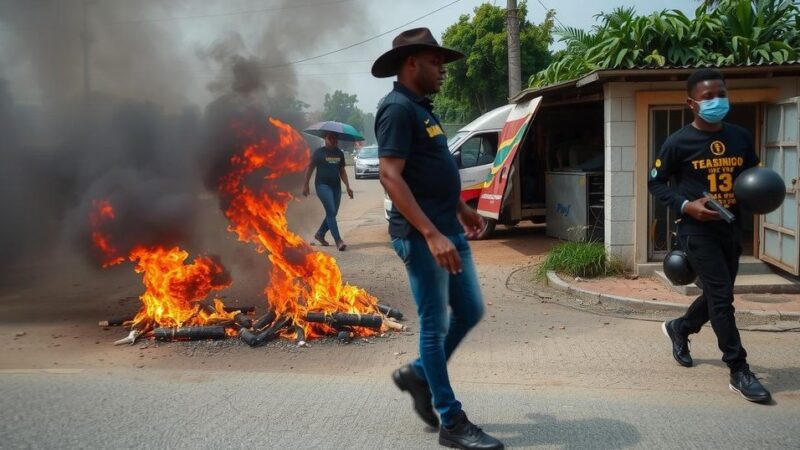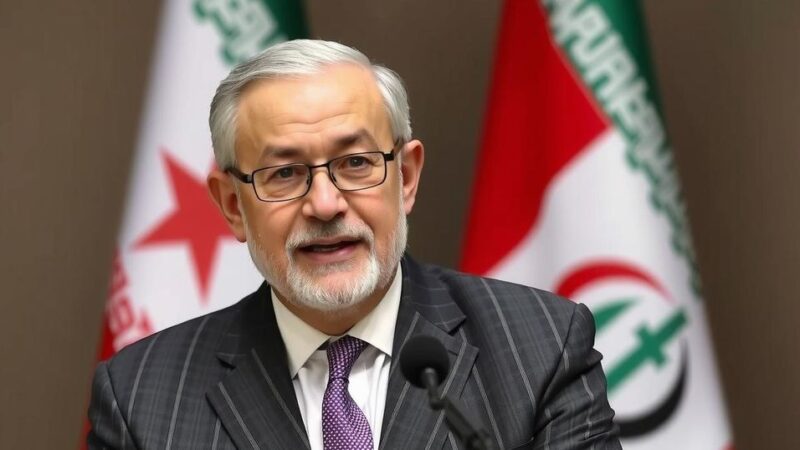U.S. Secretary of State Antony Blinken engaged with Thailand’s Prime Minister Paetongtarn Shinawatra and Malaysia’s Prime Minister Anwar Ibrahim at the East Asia Summit in Laos, aspiring to enhance bilateral relations after recent political upheavals. Blinken underscored cooperation on economic, security, and climate issues while addressing a volatile regional landscape, including developments in Myanmar.
United States Secretary of State Antony Blinken expressed aspirations for enhanced collaboration with Thailand and Malaysia amid recent political turbulence during a meeting with their prime ministers at the annual East Asia Summit held in Laos. This meeting marked a strategic pivot following extensive diplomatic endeavors concerning the Middle East crisis, which President Joe Biden opted to forgo for the second consecutive year. During his visit, Secretary Blinken conferred with Thai Prime Minister Paetongtarn Shinawatra, a 38-year-old political heir who assumed office a month prior following the ousting of her predecessor and the dissolution of the principal opposition party. In their discussions, Blinken emphasized the United States’ desire to engage collaboratively to “focus on things that we can do to better the lives of our people,” particularly in realms such as economy, security, and climate change. He further stated, “The two countries have such an extraordinary history together, and we simply want to build on it.” Prime Minister Shinawatra conveyed the impact of recent devastating floods in northern Thailand and affirmed a commitment to fostering strong, long-term relations with the United States. It is noteworthy that Thailand has been recognized as the oldest U.S. ally in Asia, albeit with an ongoing narrative of criticisms aimed at the nation’s democratic practices, albeit usually delivered with caution. The U.S. State Department registered its concern following the dissolution of the reformist Move Forward Party and the political prohibition of prominent politician Pita Limjaroenrat in August. Subsequently, Secretary Blinken engaged with Malaysian Prime Minister Anwar Ibrahim, who has openly criticized the U.S. stance on Israel. Neither leader addressed the volatile situation in the Middle East during their brief remarks. Instead, Blinken highlighted the significance of American investments in Malaysia, stating, “I think this is a tremendous sign of both trust and confidence, because the investments don’t happen unless there’s tremendous confidence in the country.” Furthermore, U.S. officials privately acknowledge the sociopolitical pressures prevalent in Malaysia, seeking a cooperative relationship with Prime Minister Anwar Ibrahim, who had previously received strong support from the U.S. during his contentious imprisonment. In the context of the Laos summit, Thailand has been proactive in seeking diplomatic avenues to address ongoing turmoil in Myanmar, where a representation from the military junta attended a high-level Southeast Asian gathering for the first time in over three years. The United States has publicly supported these diplomatic initiatives while simultaneously advocating for continued pressure on the junta, stressing the need for the liberation of political prisoners and a reduction in violence. Blinken’s notable participation in discussions comes on the heels of a recent meeting with his Chinese counterpart in New York, wherein he expressed support for Southeast Asian efforts to address concerns regarding Chinese activities in the South China Sea. The summit represents a unique scenario where Blinken finds himself in proximity to Russian Foreign Minister Sergei Lavrov, yet no formal discussions between the two officials are anticipated. The Biden administration, including Vice President Kamala Harris, has firmly ruled out negotiations with Russia concerning its aggression in Ukraine without the involvement of Kyiv.
The article discusses the diplomatic engagements of U.S. Secretary of State Antony Blinken in Thailand and Malaysia during the East Asia Summit, emphasizing the U.S. desire to strengthen bilateral relations in light of recent political challenges. It provides insight into the political context in Thailand following the rise of a new leader and the ongoing criticism of Thailand’s democratic standards by the U.S. Additionally, the article highlights Malaysia’s significant role in the region and its ties with the U.S., illustrating the complexities of international diplomacy in Southeast Asia.
In conclusion, Secretary Blinken’s meetings with the leaders of Thailand and Malaysia signify the United States’ commitment to reinforcing diplomatic relations and addressing regional challenges collaboratively. Through dialogues focused on economy, security, and climate resilience, the U.S. aims to navigate political sensitivities while promoting long-term partnerships with its allies in Southeast Asia.
Original Source: www.voanews.com







